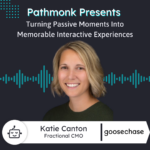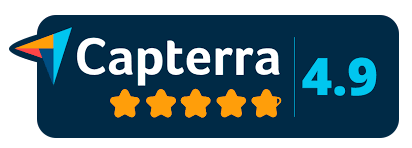SaaS Company
Introduction
How to overcome your biases to increase website conversions? Ben is an expert in digital marketing and shared what he has learned in Marcel Digital, which is is a custom website development firm and full-service digital marketing agency using Pathmonk. Ben is a seasoned digital marketing professional and an entrepreneur who launched Marcel Digital in early 2003.
MarcelDigital focuses on middle marketing firms from a variety of verticals including B2B, Education, Healthcare, Insurance, Finance, eCommerce and more. Their services include search engine optimization, pay-per-click management, web development, digital marketing strategy, conversion rate optimization and advanced website analytics implementation and reporting.
In today’s episode, Ben shared his insight into the early days of Marcel Digital, how the company has grown and the challenges they have been facing along the way. We dug deeper into website analytics and discussed a lot about overcoming biases about increasing conversions. Tune in…
See an abstract of the interview on how to master website conversion optimisation:
Pathmonk: We had a lot of conversion rate optimization folks on the shows and I’m always curious to know, like, especially you working with a bunch of clients already, what challenges would you typically see your clients face when trying to convert more visitors from your website?
Ben Swartz: Sure, sure. Well the hardest thing is that in our own minds before we look at the data, we become sure about the eventual outcome of a test. We just know it in our hearts that the test is going to, be, is going to show a clear winner. We’re going to be making changes to the website. It just seems that the most typical outcome is that what we least expect becomes the truth. And it’s just fascinating but in order for you to have that, you have to have established trust with the clients to go on this journey? Right And so we try to engage them with this truth that as much as we all believe going into a test that it’s going to prove to be successful. Because of course, we need to limit the number of form fills. Of course, we need to add more trust seals. Of course, we need to limit navigation. It does not work that way. The power of the web is the fact that there’s billions and billions of people searching and they get to do whatever they want to do. It’s not our job to try to corral billions of people. It’s our job to understand what they want, regardless of why they want it and then deliver it to them.
Pathmonk: This is an amazing point.
Ben Schwartz: I just had this conversation with our team yet to date. It’s always the the least expected one.The most surprising one that isn’t actually turning out to be the truth.
Pathmonk: What have you seen, like the businesses that you’re working with, what’s the role of the conversion rate for them? Is that the term that they use? Is that something you educate them about?
Ben Schwartz: Yeah. The question is that the terminology that they’d like to focus on is the rate of conversion?
Pathmonk: Yeah. A lot of is there a lot of education that you will have to do? Do they come already in by asking that? Like what’s your typical scenario around that…
Ben Schwartz: Well, it’s funny. The terminology in the digital world has always been a challenge to many acronyms. People I think intuitively understand conversion rate optimization without a whole lot of training. Where we do need to define terms is what is it conversion, what’s our goal. In the eCommerce world it’s typically quite straightforward, revenue. In the B2B, B2C lead generation world, engagement is just such an interesting question. We spend quite a bit of time early on defining what a conversion is and we end up, breaking things into macro and micro conversions and for the first year or so want to look at it through that lens only as much as possible because once it’s not until you see it some volume of results that we can really hone in on what should be the macro conversion for particular client. It’s and not because it’s elusive, it’s because they don’t know until they actually see it.
Pathmonk: Any challenges that you’ve been facing to get, constitute really actually focus on that? Or is that something that, once you show them the concept and you show them the first results, they are very happy to go deeper in.
Ben Schwartz: It’s patience. It’s always a patience game. And I understand it. I’m the least patient person I know. I laugh to myself. Everyone anytime someone says, Ben, thank you so much for your patience. I laugh because I have zero patience (…) That really comes down to a good partnership. And we’re super lucky. Typically we’re not engaging in conversion rate optimization alone. We’ve already established ourselves through search engine optimization, or perhaps we’ve built your website and we’ve built some trust. What we’re saying it isn’t slick agency talk. Hopefully, they understand by that point that we’re trying to be the truth and trying to deliver the best results we can get for them.
Pathmonk: Maybe last question. Are there certain industry, certain verticals that you’ve seen becoming more aware on those ideas of conversion rate optimization, and trying to get more out of their website? You have the typical ones. There’s the eCommerce or the travel companies, but have you seen other industries picking up?
Ben Schwartz: Yes.Yeah for sure. Healthcare in particular, I think that the patient or prospective patient experience is really becoming top of mind for a lot of marketing teams across the country so that they understand that. While, ultimately they’re trying to get more, prospective patients to consider them for their needs. They want people to come to their website and they want them to come into their facilities. They also understand that when someone is maybe at the symptomatic or informational part of their, journey, that counts wet as well. That when they’re in a susceptible emotional place while they’re researching and to, into, find a way to engage with them at a higher level while they’re at stage is really important and fits well within their models so that’s an emerging area. And we love working with those folks. They do such amazing work. Their passion is incredible.
(…)











